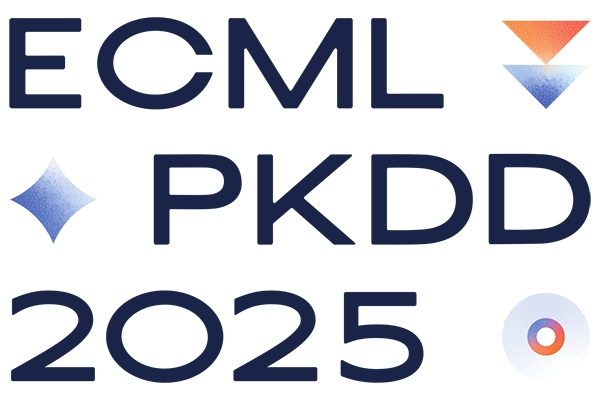23.04.2023

MCML Researchers With Three Papers at AISTATS 2023
26th International Conference on Artificial Intelligence and Statistic (AISTATS 2023). Valencia, Spain, 28.04.2023–30.04.2023
We are happy to announce that MCML researchers are represented with three papers at AISTATS 2023. Congrats to our researchers!
Main Track (3 papers)
Frequentist Uncertainty Quantification in Semi-Structured Neural Networks.
AISTATS 2023 - 26th International Conference on Artificial Intelligence and Statistics. Valencia, Spain, Apr 25-27, 2023. URL
Abstract
Semi-structured regression (SSR) models jointly learn the effect of structured (tabular) and unstructured (non-tabular) data through additive predictors and deep neural networks (DNNs), respectively. Inference in SSR models aims at deriving confidence intervals for the structured predictor, although current approaches ignore the variance of the DNN estimation of the unstructured effects. This results in an underestimation of the variance of the structured coefficients and, thus, an increase of Type-I error rates. To address this shortcoming, we present here a theoretical framework for structured inference in SSR models that incorporates the variance of the DNN estimate into confidence intervals for the structured predictor. By treating this estimate as a random offset with known variance, our formulation is agnostic to the specific deep uncertainty quantification method employed. Through numerical experiments and a practical application on a medical dataset, we show that our approach results in increased coverage of the true structured coefficients and thus a reduction in Type-I error rate compared to ignoring the variance of the neural network, naive ensembling of SSR models, and a variational inference baseline.
MCML Authors

Emilio Dorigatti
Dr.
* Former Member
Rank-Based Causal Discovery for Post-Nonlinear Models.
AISTATS 2023 - 26th International Conference on Artificial Intelligence and Statistics. Valencia, Spain, Apr 25-27, 2023. URL
Abstract
Learning causal relationships from empirical observations is a central task in scientific research. A common method is to employ structural causal models that postulate noisy functional relations among a set of interacting variables. To ensure unique identifiability of causal directions, researchers consider restricted subclasses of structural causal models. Post-nonlinear (PNL) causal models constitute one of the most flexible options for such restricted subclasses, containing in particular the popular additive noise models as a further subclass. However, learning PNL models is not well studied beyond the bivariate case. The existing methods learn non-linear functional relations by minimizing residual dependencies and subsequently test independence from residuals to determine causal orientations. However, these methods can be prone to overfitting and, thus, difficult to tune appropriately in practice. As an alternative, we propose a new approach for PNL causal discovery that uses rank-based methods to estimate the functional parameters. This new approach exploits natural invariances of PNL models and disentangles the estimation of the non-linear functions from the independence tests used to find causal orientations. We prove consistency of our method and validate our results in numerical experiments.
MCML Authors
Efficient SAGE Estimation via Causal Structure Learning.
AISTATS 2023 - 26th International Conference on Artificial Intelligence and Statistics. Valencia, Spain, Apr 25-27, 2023. URL
Abstract
The Shapley Additive Global Importance (SAGE) value is a theoretically appealing interpretability method that fairly attributes global importance to a model’s features. However, its exact calculation requires the computation of the feature’s surplus performance contributions over an exponential number of feature sets. This is computationally expensive, particularly because estimating the surplus contributions requires sampling from conditional distributions. Thus, SAGE approximation algorithms only take a fraction of the feature sets into account. We propose $d$-SAGE, a method that accelerates SAGE approximation. $d$-SAGE is motivated by the observation that conditional independencies (CIs) between a feature and the model target imply zero surplus contributions, such that their computation can be skipped. To identify CIs, we leverage causal structure learning (CSL) to infer a graph that encodes (conditional) independencies in the data as $d$-separations. This is computationally more efficient because the expense of the one-time graph inference and the $d$-separation queries is negligible compared to the expense of surplus contribution evaluations. Empirically we demonstrate that $d$-SAGE enables the efficient and accurate estimation of SAGE values.
MCML Authors

Gunnar König
Dr.
* Former Member
23.04.2023
Related

22.09.2025
Predicting Health With AI - With Researcher Simon Schallmoser
Simon Schallmoser uses AI to predict health risks, detect low blood sugar in drivers, and advance personalized, safer healthcare.

19.09.2025
MCML Researchers With 24 Papers at MICCAI 2025
28th International Conference on Medical Image Computing and Computer Assisted Intervention (MICCAI 2025). Daejeon, Republic of Korea, 23.09.2025 - 27.09.2025

15.09.2025
Robots Seeing in the Dark - With Researcher Yannick Burkhardt
Yannick Burkhardt erforscht Event-Kameras, die Robotern ermöglichen, blitzschnell zu reagieren und auch im Dunkeln zu sehen.

12.09.2025
MCML Researchers With Eight Papers at ECML-PKDD 2025
European Conference on Machine Learning and Principles and Practice of Knowledge Discovery in Database (ECML-PKDD 2025). Porto, Portugal, 15.09.2025 - 19.09.2025




